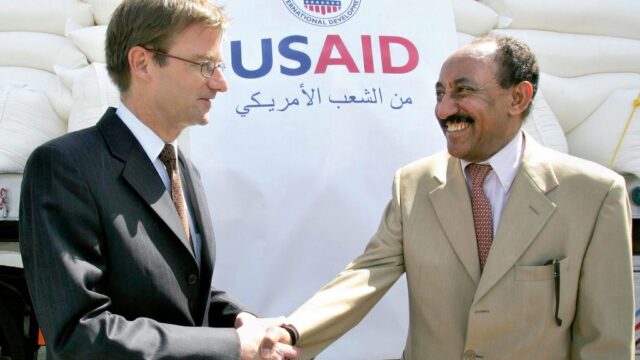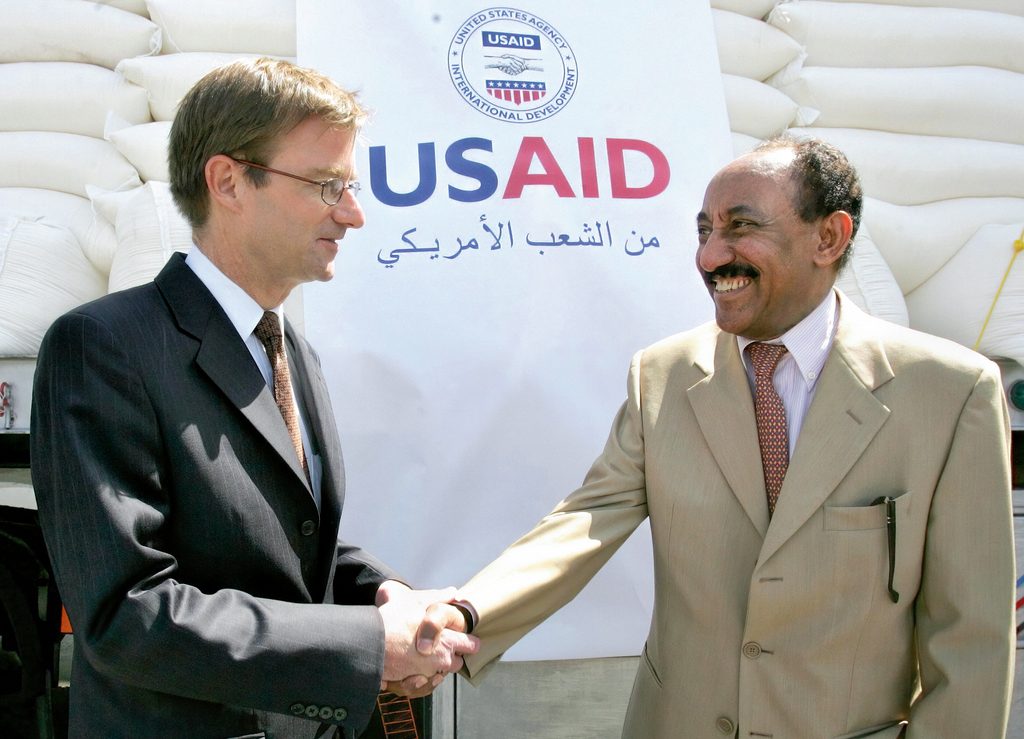FAQs
What is the mission of the U.S. Department of State?
The mission of the U.S. Department of State is twofold. Also known as the State Department, this institution represents American foreign policy abroad. The State…

While a multifaceted skill set is needed to successfully engage in diplomacy, the two most important skills are:
Those two skills are the basis of all diplomatic negotiations and are just as important in a simple trade agreement as they are in a more sensitive matter, such as a peace treaty or arms control.
To be successful, diplomats must enter discussions with a clear goal and strategy of what can be exchanged to reach an agreement. They also have to listen carefully to what their counterparts say and find ways to agree or compromise. In negotiating, diplomats often use rewards—such as the promise of a new trade deal, an arms sale, or shipments of food—to encourage an agreement.
When diplomatic interests collide and a deadlock ensues, negotiators might threaten sanctions such as restricting travel, halting financial assistance, or a trade embargo to persuade the other parties to accept an agreement.

The final result of negotiations is usually a formal written communique or agreement that spells out the actions and responsibilities of each side. The most well-known written outcome is a treaty, or a formal, written agreement between sovereign states, among countries, or between international organizations.
In the United States, treaties are negotiated through the executive branch, which includes the U.S. Department of State. Once the negotiators have accepted the terms of the treaty, the president sends the treaty to the U.S. Senate for its advice and consent on ratification or endorsement. If the Senate approves, the treaty is returned to the White House for the president’s signature. Many other countries have similar procedures for ratifying agreements.

Other forms of agreements include: